Sophie Treadwell MACHINAL

NICK HERN BOOKS London www.nickhernbooks.co.uk Contents Introduction
Machinal is the most famous work of Sophie Treadwell, a playwright, journalist, novelist, producer and sometime actor and director who was born and raised in California. She began writing plays and acting at the University of California, from which she graduated in 1906. Treadwell hoped to be a performer but her onstage career was limited to a brief stint in vaudeville and occasional dramatic roles, usually in her own works. Like many American women playwrights of her generation she was trained as a reporter, and in her early years she covered everything from theatrical premieres to baseball games for the
San Francisco Bulletin. Treadwell soon became a respected journalist whose accomplishments included an undercover series on homeless women, an exclusive interview with Mexican revolutionary Pancho Villa, a European tour as a war reporter during World War One, and a year as a special correspondent in Mexico during World War Two. As Nancy Wynn records in her dissertation on Treadwell, the playwright had a long and extraordinary life.
Although she suffered from debilitating illnesses (with symptoms resembling those attributed to Helen in Machinal) she was an indefatigable worker and traveler. Her journeys throughout the world were sometimes the inspiration for her plays, whose settings extend from Moscow to Mexico. Treadwell was married for two decades until his death to journalist William O. McGeehan, but she retained her own name and career and often maintained a residence separate from his. A member of the feminist Lucy Stone League, she marched in favor of womens suffrage and wrote about societys oppression of women. She occasionally produced and even directed her own work, a rare accomplishment in the male-dominated world of the American commercial theater.
In the course of her career Treadwell who died in 1970 at the age of 84 completed hundreds of newspaper stories, four novels and more than thirty plays, seven of which appeared on New York stages. Treadwells early works include Gringo, based on her experiences in Mexico, and O Nightingale, a comedy about a stagestruck young woman that Treadwell herself co-produced. She wrote Machinal (the term is French for mechanical or automatic), the play for which she is best remembered today, in 1928. Loosely based on the sensational murder trial of Ruth Snyder and Judd Gray, Machinal was a critical success, ran for 91 performances in New York, and was chosen by Burns Mantle for his volume The Best Plays of 1928-29. Reviewers compared the work favorably to Theodore Dreisers An American Tragedy in theme and Elmer Rices The Adding Machine in technique. Machinal was even lauded in a Times editorial as a play that in a hundred years should still be vital and vivid. Machinal was even lauded in a Times editorial as a play that in a hundred years should still be vital and vivid.
In 1931 the drama premiered in London under the title The Life Machine. Although some reviewers were offended by the plays sexual content, the London Times critic had no such problem and considered all but the last scene expressive and beautifully clean-cut. Machinal had its greatest triumph in Russia, where it enjoyed a long run at Moscows Kamerny Theatre before touring the provinces. A television adaptation was aired in the United States in 1954, and a revival with choreography by Sophie Maslow was performed a few years later. Machinal uses expressionist techniques to create a parable about an ordinary young woman who lives in a mechanized, materialistic world. Treadwell takes Helen through the stages of a kind of modern Everywoman: work in a boring office, marriage to a boss who offers her financial security (hes a Vice-President of course hes decent her mother insists), a motherhood that oppresses her and a lover who abandons her.
The expressionist form flat characters, repetitive dialogue and action, numerous short scenes, harsh audio effects, confusion of inner and outer reality is the perfect medium for presenting the life of a young woman who asks an impersonal society Is nothing mine? Treadwell attacks capitalism for putting even intimate relationships on an economic footing, but her critique extends to technology, medicine, law, motherhood, the press, romance (including a speakeasy that closely resembles a contemporary singles bar) and even religion. It is a recognizably feminist critique as well: the audience looks through Helens eyes, understands the events from her perspective. Throughout the nine scenes perhaps echoing the nine months of gestation Treadwell shows her protagonist confronting a phalanx of male characters with the power to determine her life. Again and again Helen complains of claustrophobia, a motif of entrapment that runs as a common thread through the plays of such female contemporaries of Treadwell as Susan Glaspell, Zona Gale, Georgia Douglas Johnson and Lillian Hellman. Sophie Treadwell never had another success comparable to Machinal, although she continued writing novels and plays for many years. Closest in theme and style to Machinal is the expressionist For Saxophone which relies heavily on music, dance and the voices of unseen characters to tell the story of another young woman trapped in a marriage of convenience.
Her works also include Plumes in the Dust, based on the life of writer Edgar Allan Poe; Rights, an unproduced drama about eighteenth-century feminist Mary Wollstonecraft; and Hope for a Harvest, an autobiographical play exposing prejudice and environmental destruction in her native California. Embittered by the lukewarm reception of Harvest, Treadwell presented no more plays on the New York stage. In 1941, the very same year Hope for a Harvest appeared, the eminent critic George Jean Nathan sneered that even the best of our [American] women playwrights falls immeasurably short of the mark of our best masculine because women by nature lack complete objectivity and the emotional control enjoyed by their male counterparts. It was in such an atmosphere of condescension that Sophie Treadwell strove to make her mark as a dramatist. Unfortunately, most of the standard histories of drama in the United States reveal similar attitudes, and Treadwell rarely rates more than a line or two if she is acknowledged at all. Even granted that Machinal is her only outstanding work, the obscurity into which she and her play fell obviously has much to do with her gender (her sister playwrights suffered a similar fate) and to Machinals biting indictment of a world ruled by men.
The current scholarly and theatrical interest in Treadwell and Machinal in the United States is partly due to feminist efforts to write women back into the theatrical history from which they have been erased, but it also stems from the fact that Machinals universe is uncomfortably like our own. The cacophony of urban sounds that underlies each scene is remarkably similar, while Machinals repetitive dialogue, woven of clichs, foreshadows the work of playwrights like Samuel Beckett, Harold Pinter and, as critic Frank Rich recently observed, David Mamet. As our lives become ever more mechanized and standardized, the story of one lone individual seeking to make her voice heard grows in relevance. Just as timely is the way Helen like Treadwell herself tries to find financial security without sacrificing her dreams, to control her own body and shape her own future, in a world in which womens power to do so remains severely limited.

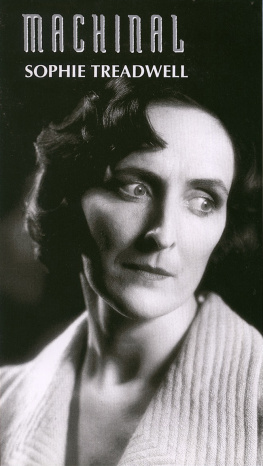

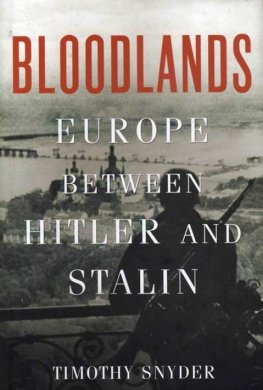
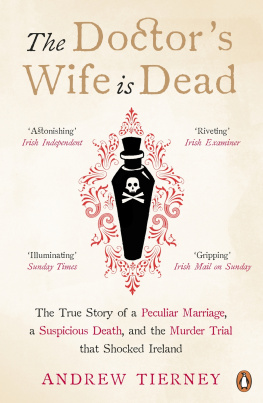


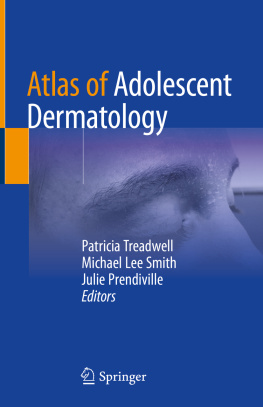


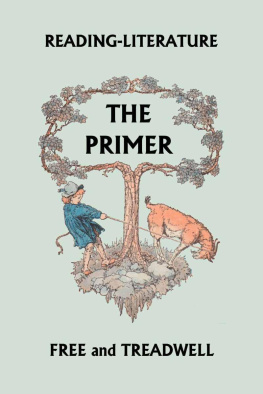



 NICK HERN BOOKS London www.nickhernbooks.co.uk Contents Introduction Machinal is the most famous work of Sophie Treadwell, a playwright, journalist, novelist, producer and sometime actor and director who was born and raised in California. She began writing plays and acting at the University of California, from which she graduated in 1906. Treadwell hoped to be a performer but her onstage career was limited to a brief stint in vaudeville and occasional dramatic roles, usually in her own works. Like many American women playwrights of her generation she was trained as a reporter, and in her early years she covered everything from theatrical premieres to baseball games for the San Francisco Bulletin. Treadwell soon became a respected journalist whose accomplishments included an undercover series on homeless women, an exclusive interview with Mexican revolutionary Pancho Villa, a European tour as a war reporter during World War One, and a year as a special correspondent in Mexico during World War Two. As Nancy Wynn records in her dissertation on Treadwell, the playwright had a long and extraordinary life.
NICK HERN BOOKS London www.nickhernbooks.co.uk Contents Introduction Machinal is the most famous work of Sophie Treadwell, a playwright, journalist, novelist, producer and sometime actor and director who was born and raised in California. She began writing plays and acting at the University of California, from which she graduated in 1906. Treadwell hoped to be a performer but her onstage career was limited to a brief stint in vaudeville and occasional dramatic roles, usually in her own works. Like many American women playwrights of her generation she was trained as a reporter, and in her early years she covered everything from theatrical premieres to baseball games for the San Francisco Bulletin. Treadwell soon became a respected journalist whose accomplishments included an undercover series on homeless women, an exclusive interview with Mexican revolutionary Pancho Villa, a European tour as a war reporter during World War One, and a year as a special correspondent in Mexico during World War Two. As Nancy Wynn records in her dissertation on Treadwell, the playwright had a long and extraordinary life.